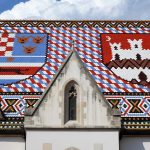Browse through Croatian history for this week; you might be surprised by what you read.
March 19
On this day in 2008, Croatia, along with Hungary, recognized Kosovo as an independent country. Just one month before this day, on February 17th, Kosovo’s ethnic-Albanian leadership declared independence from Serbia. This move, at the time, caused relentless opposition from Serbia, Russia, and the minority Serbs in Kosovo. Croatia’s decision was met with waves of animosity from Serbia as Croatia opted to side with Washington and EU powers. There were mass protests by Serbs in both Serbia and Kosovo, and Serbian’s president at the time even stated that this move would have ‘immediate negative consequences’ on bilateral relations. Serbia also recalled their ambassadors to Croatia and Hungary, as they did with every country that decided to recognize Kosovo as independent. Croatia’s decision to recognize Kosovo was also made in hopes they would finally join the EU in 2010.
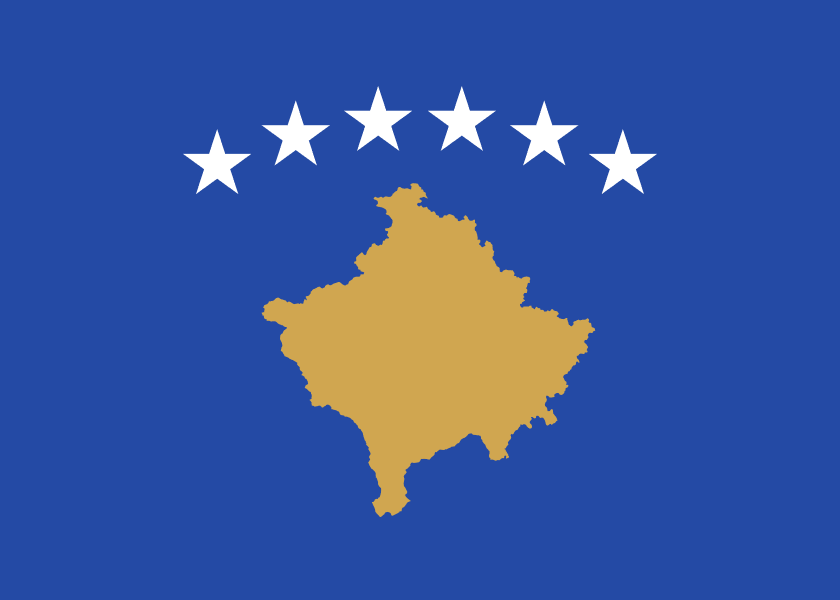
Wikimedia
March 20
Marijan Haberle was a Croatian architect born in Zagreb (1908), best known for his work on Zagreb’s Vatroslav Lisinski concert hall. He died on this day in 1979. Haberle graduated in 1931 from the Technical Faculty in Zagreb. Initially, he worked with H. Bauer then independently from 1951-77, led by Architectural Atelier Haberle. With H. Bauer he designed the Zagreb Assmebly (1936), which is today the Student Center, the House of Society of Engineers and Architects on Pierottijeva ul. 4 (1937), the Jordanovac Hospital (1938), and independently, the church of St. Josipa on Trakošćanska ul. (1937) and Bl. Marko Križevčanin on Slezska cesta (1940) – all in Zagreb. After 1945 he designed the expansion of the Zagreb Fair (1949, today the Technical Museum), the Brodarski Institute (1949-55), hotels in Plitvice Lakes and, of course, his most significant work – the concert hall “Vatroslav Lisinski” in Zagreb. He received the “Vladimir Nazor” Lifetime Achievement Award in 1973.
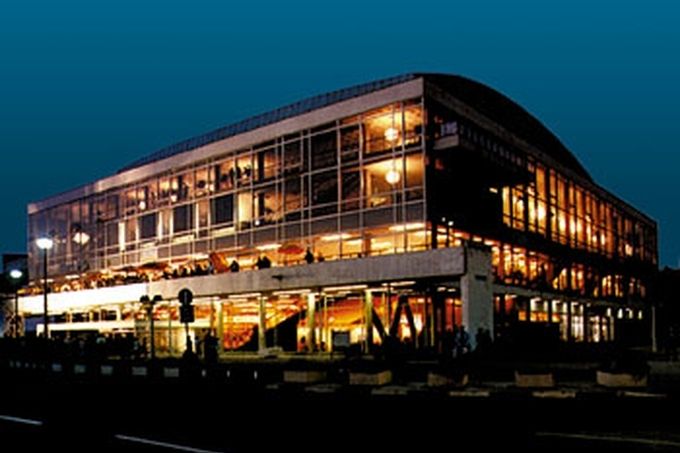
Lisinki.hr
March 21
Josip Hatze, a Split-born Croatian composer and conductor, was born on the first day of spring in 1879. Known as one of the most prominent Croatian composers, he learned he was musically inclined at a young age. Around the age of 16, Hatze would attend Chapel Mass, which led him to write ‘Misa a Kapela’ which was later performed in Dalmatian school choirs. In 1902, Hatze completed his composition studies at the Rossini Conservatory in Pesaro, and upon his return back to Split, he worked as a choir teacher. During his life, Hatze wrote up to 60 songs including the cantata ‘Night at Una’ and ‘Golemi Plan’ which was written to Vladimir Nazor’s poetry. On the 125th anniversary of the composer’s birth, Croatia issued a stamp in his honor – and today, the secondary music school in Split, as well as Hatzeov Perivoj (Hatze Park), is named after him.
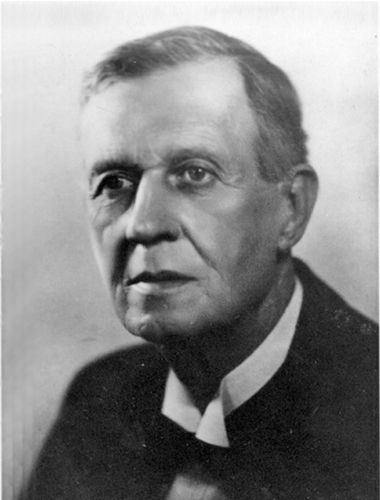
Wikimedia
March 22
On this day in 1988, Croatian composer Rudolf Matz died in Zagreb. Known as “perhaps the greatest cello theoretician in the world,” according to Leonard Rose, Matz lived in the Austro-Hungarian Empire in the Kingdom of Croatia-Slavonia. A crucially important part of music in Zagreb during the 20th century, Matz wrote around 500 instrumental and vocal compositions and was also a cellist, teacher, conductor, and choirmaster. Matz worked with music until the day he died, and he and his wife, Margarita, donated their home to the Zagreb City Museum as the Margita and Rudolf Matz Memorial Collection.
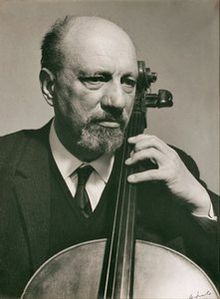
Wikimedia
March 23
In 1848, Josip Jelačić was appointed the Ban of Croatia. The son of a Croatian Baron and Austrian mother, Jelačić was born in Petrovaradin, then part of the Slavonia Military Frontier of the Habsburg Empire. Having received a gifted education in Vienna, Jelačić entrained with the Austrian Army and was promoted to the first lieutenant, then to captain in Karlovac in 1830. Known for leading the military campaign against Bosnian Ottoman troops in 1835 – a mission that rewarded him with a medal – he was then promoted again to major, followed by the lieutenant colonel, and finally colonel. After he was promoted to major colonel the day before, on March 23, 1848, he was named the Ban of Croatia by the Sabor. Just a few weeks later he became Lieutenant Field Marshal and commanded all Habsburg troops in the country. While his military career stretched much further from that, you may find Jelačić familiar by his statue in the center of Zagreb (Ban Jelačić Square). There are also 211 streets named after him in the country today!
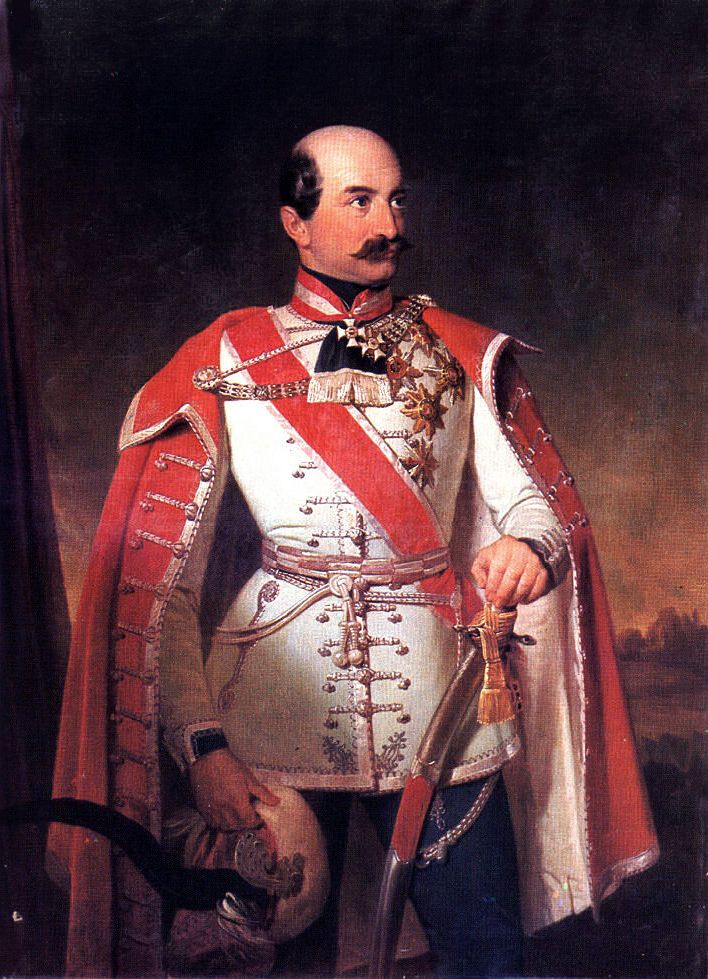
Wikimedia
March 24
On this day in 2008, Boris Dvornik, a famous Croatian actor, passed away from a stroke in Split at 68 years old. Though Dvornik’s acting career began as a child in various school plays, he finished the National Acting School in Novi Sad and then enrolled in the Drama Academy in Zagreb. Dvornik’s film debut was during his first year at the academy with the film ‘Deveti Krug’, and from that point on, he became an instant success. Known as one of the film icons of Yugoslavia, Boris was most famously known for the comic cult series “Malo misto”. After work in the Croatian National Theatre in Split during the 1980s, Boris was even elected to Croatian Parliament for a short stint in 1992. You may also be familiar with Boris because of his equally famous children, Dean and Dino.
Wikimedia
March 25
On this day in 1848, the Kingdom of Croatia adopted the political petition named ‘Demands of the Nation’. The petition consists of 30 points which include the “principles and programs of the Croatian citizens, namely the national, state, legal, social and liberal demands for the change of Croatia’s position in the Austrian Monarchy, as well as for the change of state structure and social issues within Croatia,” according to Wikipedia. Ivan Kukuljević Sakcinski read the demands at a meeting of the Grand National Assembly, which was held as a result of the Illyrian movement and social turmoil across Europe at the time. This meeting was also considered to be the start of the modern Croatian Parliament which invited all social classes to the session for the first time in history. Some of the points included in the document were: the election of Josip Jelačić as Ban, the annexation of Dalmatia and the Military Frontier to Croatia, the establishment of a modern University in Croatia, and freedom of press, religion, and speech, among many others.
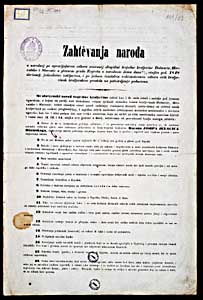
Wikimedia



